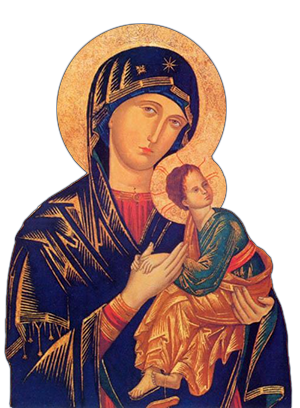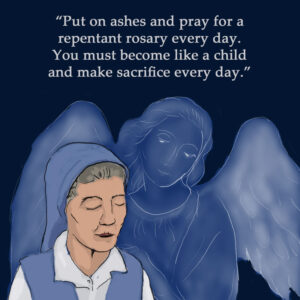Father Higgins: More About the Story of the Carmelite Martyrs of Compiegne, 1794

Last Sunday for our bulletin and also in my preaching I drew attention to the Martyrdom of the Sixteen Carmelite nuns of Compiègne who went to the guillotine on July 17th, 1794.
There is even more to the account, however, than the dramatic action of their imprisonment, their show trial before the revolutionary tribunal, and their noble deaths on the scaffold.
The back-story begins in the Carmel with a vision-dream of one of the nuns, who was considered by her fellow religious to have the gift of prophecy. This vision occurred in the year 1693. In it the nun perceived that the entire Community would one day be called to a collective act of martyrdom, to “follow the Lamb”, “except for two or three”. Thus, a tradition was founded within this Carmel and kept as their Community secret.
In the event, this vision dream was exactly fulfilled. The Community was called to a collective act of martyrdom, and, on account of particular circumstances, three of the nuns were away from the Community at the time of the mass arrest and so survived. One of these survivors, Sister Marie de l’Incarnation, lived until 1836 and collected a great many artifacts to document the martyrdom of her Community.
After their expulsion from their Carmel in mid September, 1792, when they were dispersed among four residences but clandestinely living out their religious lives, the Prioress Sister Thérèse de Saint-Augustin suggested that they recite daily an act of consecration, offering themselves to God, body and soul, as expiatory victims for the sake of bringing to an end the evils presently afflicting France and the Catholic Church. The Sisters then were conscious co-operators with what seemed to be the actualization of the mystic vision which had been revealed within their Carmel a century before. In other words, these nuns accepted the invitation to “follow the Lamb”, to join their own life-blood to the Precious Blood of Christ. There is an agency here to which we Catholic believers of today need to take notice.
Exactly ten days after the Carmelites’ martyrdom, the master-mind of the French Revolution’s Reign of Terror, Maximilian Robespierre, was overthrown and himself ended up on the scaffold of the guillotine. With his fall, the bloody killing-frenzy came to an abrupt end. The common interpretation among Catholics in its aftermath was that the Sixteen Carmelites, by their offering, had obtained the grace from God for the Reign of Terror to cease.
(Source: La relation du martyre des seize Carmélites de Compiègne, Soeur Marie de l’Incarnation— “Les documents originaux inédits publiés par William Bush”, Cerf, Paris, 1993)
Reposted with permission from Mary Immaculate of Lourdes Parish, Newton MA



